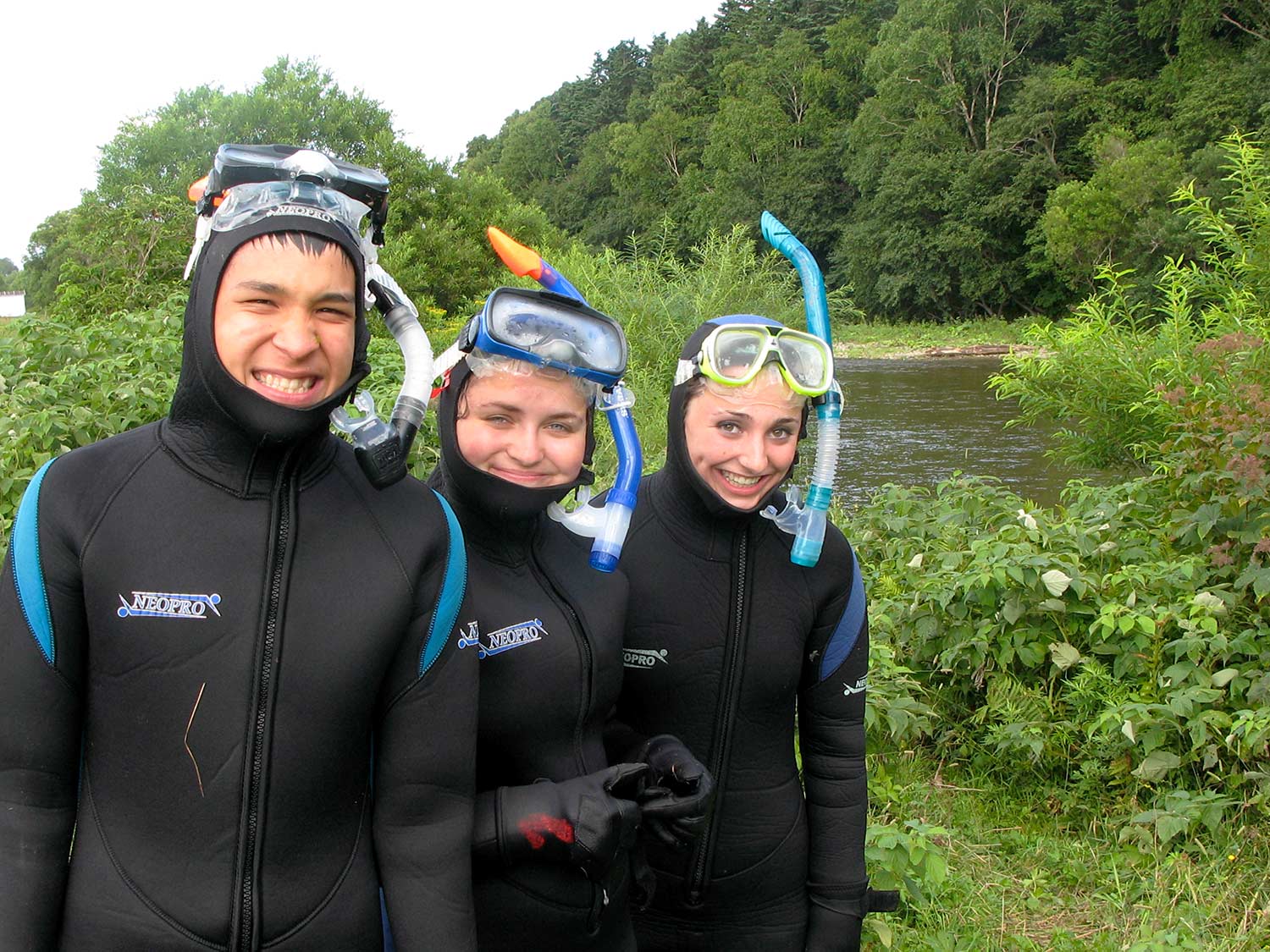U.S. and Russian teens meet in Sakhalin to address salmon conservation.
Delegates from Sakhalin, Oregon, and Alaska came together last summer to discuss salmon conservation issues and draft a “declaration” about the future of Pacific salmon from the youth perspective. The 1st International Salmon Forum was held in Portland, Oregon in 2009. This year’s hosts, the Sakhalin Salmon Initiative, took great pleasure in sharing some of Sakhalin’s richest salmon rivers with their Pacific Northwest counterparts. The Forum is part of a growing SSI education program that has made great progress over the last couple of years.

Field training focused on four areas—riparian vegetation, water quality, macroinvertibrates, and spawning — and students met with experts in fish biology, hydrology, and botany. Research teams studied the impacts of habitat and water quality on salmon in the Ochepukha and Podorozhka rivers in southeastern Sakhalin, and groups made presentations based on their findings.
As part of their education, students visited a local protected area, toured a salmon hatchery and processing facility, and met with a representative from the oil industry about global economic and environmental issues. They were introduced to the principles of ecotourism by a local guide, and enjoyed an opportunity to try fly fishing. During one of their snorkeling excursions, they also had the unfortunate luck of an unplanned lesson on the impact of poaching when they came across the remains of illegal nets.

The format of the Forum allowed participants to engage in real-world activities that involved interpersonal and intercultural communication. Through investigating salmon rivers and creating joint policy recommendations, participants made friends and worked together despite language and cultural differences.
Students gained a deeper appreciation of the indigenous groups on Sakhalin and the cultural significance that salmon have within these cultures. In addition to a tour of the Sakhalin History Museum, students sampled traditional Nivkh food, competed in traditional sports, and heard live music in the Nivkh language.
